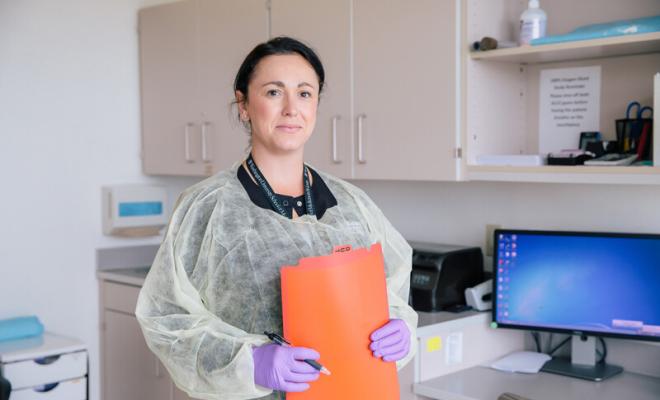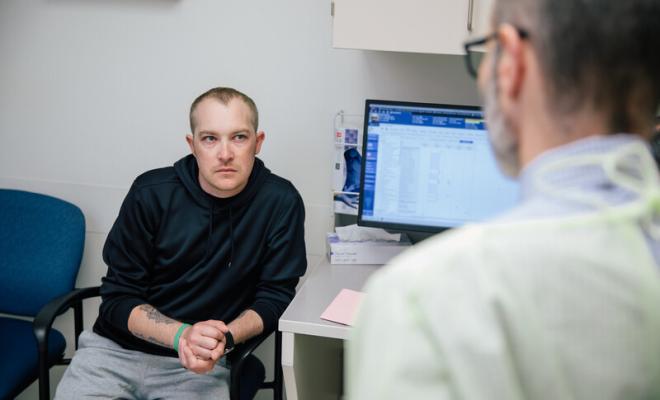Your Child's Safety Comes First
Clinical trials are designed to minimize risk for kids. When studying a new drug, researchers must first collect and review safety data in adults before testing in adolescents and then, finally, children. By the time a
In addition to showing that a new drug is safe, researchers must also show that it is effective. If a drug doesn't work in adults with CF, it won't be studied in younger age groups. This helps to minimize the chance that children will receive a treatment that doesn't work for them.
Still, drugs that have been tested in adults can act differently in children. For example, drugs require different dosages and sometimes produce different side effects in children than adults. Many different people will closely monitor your child's safety during a clinical trial, and you can stop participating at any time.
Informed Consent and Assent
It's your right to know everything about your child's role in a clinical trial. Through the informed consent process, you will receive key information about the study: the purpose, the types of treatments and procedures involved, and the potential benefits and risks.
Parents have to give legal consent for their child to participate in a research study. Children may also be asked to assent, or agree, to participate. This involves giving them basic facts about a research study and asking them to be part of the decision. Children as young as 7 years old can be asked to give assent.
If you are thinking of enrolling your child in a study, you may want to ask them how they feel about it. Some children will want to be part of the process, while others may not. Some may be uncertain or afraid, worried about pain or concerned about how it will affect school or friendships. Some will be interested in helping other kids.
“My kids are very vocal about their interest in participating. They don't want to see another child go through [the sickness that] they went through.”
- Elizabeth Bishop, mother of twins with CF
At any age, the important thing is that your child is comfortable and their questions are answered. The research team may be able to help if you and your child disagree about participation. Some studies have advocates and ethics experts involved who can help with questions.
Ask Questions
Your study team is prepared to answer your questions, so don't hesitate to ask the
- What is the purpose of the clinical trial?
- Why do researchers think that this particular CF drug or treatment might work?
- Who is paying for and supporting the study?
- Who has reviewed and approved the study?
- Who will be in charge of my child's care?
- How long will the study last?
- What will my responsibilities be if my child participates?
- What kinds of therapies, procedures, or tests will my child have during the trial?
- Will any of the therapies, procedures, or tests hurt, and, if so, for how long?
- How do the tests in the study compare with those my child would have outside of the trial?
- Will my child be able to take his or her regular medications while in the clinical trial?
- What are the risks?
- What are the benefits?
- How do the possible risks, side effects, and benefits compare with my child's current treatment?
- How could being in this study affect the daily life of my child or my family?
- Can I talk to other people who are participating in the study?
- Will I be compensated for my child's participation in the clinical trial and/or travel expenses?
- What is the time commitment for us?
- Will results of the clinical trial be given to me and, if so, when?
- Whom should I communicate with during the trial: the research team, my CF care team, or both?
Write down your questions before you talk with your doctor or members of the research team to make sure you remember to ask them all. Also, try to write down the answers or record them with your smartphone, so that you can review them whenever you want.
Costs and Compensation
As a parent, you may be concerned about the cost of participating in a clinical trial. There are no fees to participate in a clinical trial, but you may incur expenses as a result of participating. Most studies offer
Here are some questions you may want to ask:
- Will I have to pay for travel (gas, bus, subway, cab) and parking?
- Are there funds to help me if I have to miss work without pay?
- What if there is an overnight stay?
- Will meals be provided?
- What will the study pay for, and what is my insurance expected to pay for?
- What if I don't have health insurance? What will I have to pay for?
- Will I need to pay for the study medication once the study is complete?
Accommodating Your Schedule
Care centers and researchers often can work together to coordinate schedules so that regular care center visits can take place at the same time as the research visit. Often appointments can be moved to the beginning or end of the day to accommodate your work day.
If you believe there are other obstacles to participating, your research team might be able to engage in some creative problem-solving with you. For example, some parents have had problems with schools allowing time off for children with CF to participate in clinical trials. If that is the case, your care center doctor can send a letter to the school stating why the children need to participate.
In any case, you should ask the research team about the time commitment for the trial so you know how many visits you will need to make and how long they will last.
What You Can Expect
You should expect that your child will undergo more testing than would be done during clinical care visits because researchers must document changes in your child's health. These tests could include blood tests and extra breathing tests.
Your child's care center will continue to be responsible for your child's primary care. If your child experiences any problems, you should let your care team and the research coordinators know.
When a study ends, it may take a while for the researchers to analyze data and publish results. If your child was testing a medication, he or she may have to stop the study medication at the end of the trial unless there is an open-label extension to the trial, or the drug becomes approved by the U.S. Food and Drug Administration (
An open-label extension study means the doctors and participants know which treatment is being provided. Participants are invited to


